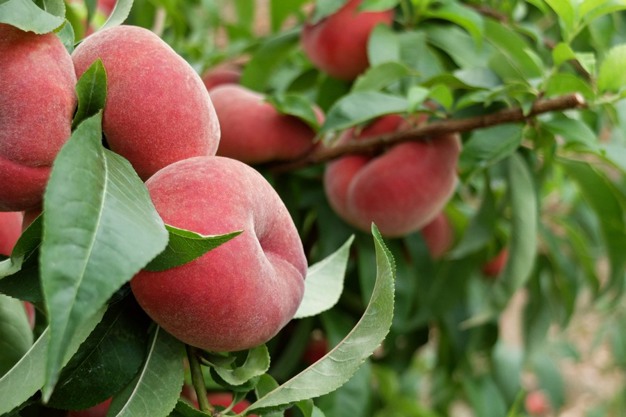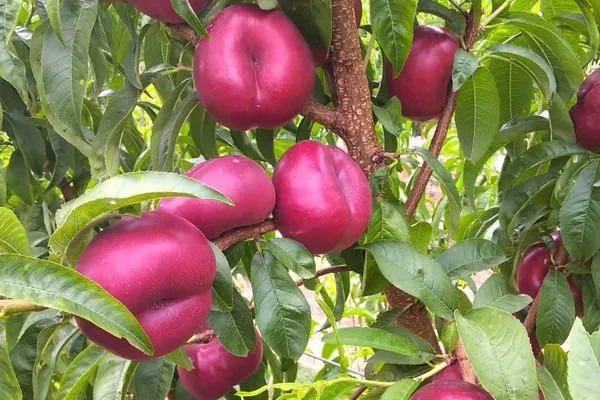The varietal improvement program of Agro Séléctions Fruits (ASF), acquired by the Spanish company Frutaria in 2018, boasts over 10,000 hectares of commercial varieties cultivated worldwide, available from April to September in the Northern Hemisphere and from November to March in the Southern Hemisphere. ASF has become the core element of the Frutaria Innovation entity.
ASF had already developed a range of medium and high chilling stone fruit varieties, and thanks to the integration of the research centers in Huelva and Seville in 2020, it is increasingly completing its range with low chilling varieties, adhering to the same hybridization and evaluation protocols as in its center in Elne, near Perpignan, France, as well as in Extremadura and Aragon. It is exchanging plant material from all these locations to be able to conduct a multi-site and multi-climatic assessment.

"Our first commercial variety of the Regal'in range, adapted to warm climates, is available already in April, and we have the genetics to be able to finish in October," says Christophe Bouchet, Director of Varietal Improvement at ASF. "We still don't have a complete range of low chilling varieties, but that is going to be our focus in the coming years, as we already have complete ranges of peaches and nectarines, both round and flat, from May to September."
"It won't be an easy task, but we believe that the key is to fill the early gap with varieties that offer as good a flavor as the mid-season and late fruit. That would be very interesting both for the grower and, of course, for the consumer," says Bouchet.
"In recent years, the summer has tended to start earlier as a clear result of climate change. Therefore, there is a search for more precocity, as the demand for juicy and refreshing stone fruit usually grows when the weather gets hot. The final part of the campaign, however, has tended to become more challenging due to the weather conditions and to market-related factors," he says.
According to Bouchet, by evaluating its plant material in different areas, ASF can make informed choices about what varieties to work with and be ready for the climate changes already predicted for the coming years. "It is interesting, for example, to closely monitor how the varieties are responding to the heat waves that are becoming more frequent in Extremadura. In a few years, the climate there could become similar to the one Seville currently has, but with colder winters, which would allow the production of summer varieties."
"When producers from any part of the world get in touch with us, our goal is to be able to offer them the best varieties for their area, following relatively simple climatic description criteria. I believe that, if we continue on this path, we will have ranges adapted to different climatic zones. It is a great responsibility for us as breeders, because planting stone fruit trees entails a high investment for the producers, at a time when profit margins are very tight and there is no room for mistakes," says Bouchet.
And it is not an easy task, as, according to the Director of Varietal Improvement at ASF, "the projects launched now will not bear fruit for 15 years, but we must also be able to offer well-established varieties to those wanting to plant in 2025."

The Maillard family launched its hybridization program in the 1980s, with taste quality as the focus of their work. "It was a revolutionary step at that time, when everyone was mainly focused on productivity, size and other agronomic features. We often come across options that are very interesting in other aspects, but which lack the flavor that meets our standards, so we discard them. Sometimes we even wonder if it is even possible to improve the flavor we have achieved in many varieties. We have many years of experience in this regard."
Between 50 and 100 selections are made out of about 1,000 hybrids, and from them, if all goes well, only one or two will end up becoming a commercial variety. "We pay a lot of attention to agronomic defects, to the fruit's shape, color, size, texture, and especially, to the flavor. Then we monitor their resistance to bio-aggressors and climatic factors, since the goal is for the production to be adapted to climate change and reduce the need for pesticides. However, these are woody crops, so it will take a long time," says Christophe Bouchet.
For more information:
Christophe Bouchet
Agro Séléctions Fruits
+33 (0) 468378880
[email protected]
